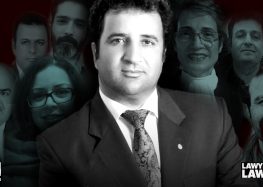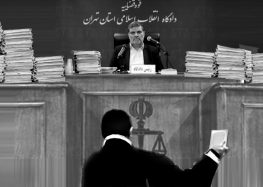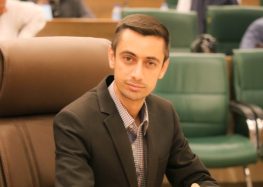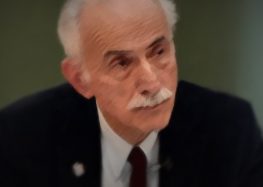18 Years in Prison and 20 Year Ban on Legal Practice for Abdolfattah Soltani
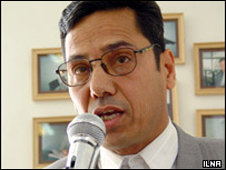 On 4 March, Branch 26 of Tehran Revolutionary Court sentenced lawyer and co-founder of Center for Human Rights Defenders Abdolfattah Soltani to 18 years in Borazjan Prison and a 20-year ban on his legal practice. Massoumeh Dehghan, Abdolfattah Soltani’s wife, confirmed the news in an interview with the International Campaign for Human Rights in Iran.
On 4 March, Branch 26 of Tehran Revolutionary Court sentenced lawyer and co-founder of Center for Human Rights Defenders Abdolfattah Soltani to 18 years in Borazjan Prison and a 20-year ban on his legal practice. Massoumeh Dehghan, Abdolfattah Soltani’s wife, confirmed the news in an interview with the International Campaign for Human Rights in Iran.
International Campaign for Human Rights in Iran: How and when did you find out about your husband’s sentence?
Massoumeh Dehghan: Yesterday, the ruling was served to one of Mr. Soltani’s lawyers who had gone to the court to follow up. He said that Mr. Soltani’s ruling was about 60 to 70 pages. But Mr. Soltani did not even defend himself, because he did not believe his court to be qualified. I believe this ruling was issued based on the charges leveled against him, and not based on Mr. Soltani’s defense. I believe it is even disproportionate to the charges.
Campaign: Your husband was charged with “being awarded the [2009] Nuremberg International Human Rights Award,” “interviewing with media about his clients’ cases,” and “co-founding the Center for Human Rights Defenders.” Is the 18-year prison sentence and 20-year ban on legal activities normal for such charges?
Dehghan: I believe this ruling was issued to just satisfy some, as this ruling is not rational, fair, or proportionate to the charges. It appears that some people wanted to seek satisfaction by issuing maximum punishment for him. I am hopeful that having achieved what they wanted, they would somehow compensate for the damage they have caused at appeals level.
Campaign: To your knowledge, was your husband under pressure to issue a false confession?
Dehghan: On his trial day, Mr. Soltani told his lawyers that ‘someone came to me and asked me to speak against the Center for Defenders [of Human Rights] and Ms. Shirin Ebadi, and I told him that the center has not done anything illegal.’ I remember this is what he told his lawyers.
Campaign: Your husband’s lawyers have not been able to meet with him to inform him of the sentence since they received it yesterday. Are they planning to appeal the sentence?
Dehghan: Mr. Soltani’s lawyers will definitely write their defense bill and ask for an appointment to consult with him, and they will then present their bill to the court. This is the legal process, but I don’t know what would happen afterwards. If this case is reviewed in a fair and qualified court, the sentence will definitely be overturned and like the other time, he will be acquitted. We only hope that those who would review the case in the appeals court are impartial and fair.
Campaign: How is your husband’s health? How are his prison conditions?
Dehghan: As of his call from prison yesterday, his situation remains the same. He remains inside Ward 209 of Evin Prison, even though he should be transferred to the General Ward. He has not yet received the books we sent him. But he is sick and his illness is something he developed during his stay in prison. He suffers from intestinal problems and needs to walk a lot and eat a suitable diet, which is not possible inside prison. For example, he must eat fruits every day, which is not possible inside the prison. I only hope that the food and water he receives are healthy.
Abdolfattah Soltani, a distinguished human rights lawyer, was arrested on 10 September 2011. At an 8 January trial at Branch 26 of the Revolutionary Court under Judge Pirabbasi, Soltani faced three charges: “being awarded the [2009] Nuremberg International Human Rights Award,” “interviewing with media about his clients’ cases,” and “co-founding the Center for Human Rights Defenders.” In 2003, Abdolfattah Soltani co-founded the Center for Human Rights Defenders along with Shirin Ebadi, Mohammad Seifzadeh, Mohammad Ali Dadkhah, and Mohammad Sharif. He was the defense lawyer of many Iranian political and civil activists, including Akbar Ganji, Haleh Esfandiari, Zahra Kazemi’s family, Zahra Baniyaghoub’s family, several Nationalist-Religious activists, and members of the Tehran Bus Company Workers’ Union. He was arrested once before in 2009, and was released after more than two months in prison.

